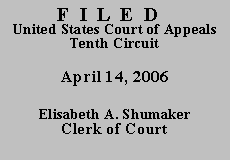

| UNITED STATES OF AMERICA, |
|
| v. | |
| CENOBIO ALFONSO RODRIGUEZ-ROJO, |
Rodriguez-Rojo, a citizen of Mexico, lived in El Paso, Texas with a woman named Araceli Barrera, with whom he had three children. In 1997 he pushed Barrera in the back with his hand and was criminally charged in El Paso County with assault. Rodriguez-Rojo pled guilty and was sentenced to "1 yr confinement in the El Paso County Jail." (Vol. I, Doc. 15, Ex. A.) However, at the same time, the court ordered "that the imposition of the sentence be suspended and that the Defendant be, and is hereby placed on Community Supervision in this case for a period of 1 yr." (Vol. I, Doc. 15, Ex. A.) Rodriguez-Rojo was subsequently deported.
In 2003, Rodriguez-Rojo returned without permission to the United States to care for his children, who had been abandoned by Barrera and were living with Rodriguez-Rojo's sister in New Mexico. He was charged with Illegal Reentry pursuant to 8 U.S.C. § 1326 and pled guilty to this offense. At sentencing, the court calculated the applicable guideline range and considered the factors set forth in 18 U.S.C. § 3553(a). In calculating the guideline range, the court increased the range by eight levels based on its conclusion that the Texas conviction was an "aggravated felony." See USSG § 2L1.2(b)(1)(C). Under the Guidelines, the offense level was 17, and his criminal history category was IV, yielding a range of 24 to 30 months in prison. The court imposed a 24-month sentence.
Rodriguez-Rojo raises several reasons why the district court erred in enhancing the guideline calculation based on a prior "aggravated felony" under USSG § 2L1.2(b)(1)(C). Since United States v. Booker, 543 U.S. 220 (2005), we review sentences for reasonableness. United States v. Kristl, 437 F.3d 1050, 1053 (10th Cir. 2006). Although a sentence within the guideline range is presumptively reasonable, we first "determine whether the district court considered the applicable Guidelines range, reviewing its legal conclusions de novo and its factual findings for clear error." Id. at 1055.
Rodriguez-Rojo first argues that his Texas conviction cannot be an aggravated felony because it was a misdemeanor under Texas law. See Tex. Penal Code Ann. § 22.01 (making assault a Class A misdemeanor). However, "an offense classified by state law as a misdemeanor can be an 'aggravated felony' triggering a sentencing enhancement under § 2L1.2 if the offense otherwise conforms to the federal definition of 'aggravated felony' found in 8 U.S.C. § 1101(a)(43)." United States v. Saenz-Mendoza, 287 F.3d 1011, 1014 n.5 (10th Cir. 2002) (quoting United States v. Robles-Rodriguez, 281 F.3d 900, 903 (9th Cir. 2002); see also USSG § 2L1.2 n.3(A). Under that statute, an aggravated felony includes "a crime of violence . . . for which the term of imprisonment [is] at least one year." 8 U.S.C. § 1101(a)(43)(F). Thus, the fact that the crime was a misdemeanor under Texas law does not end the discussion.
Rodriguez-Rojo next argues that the crime was not an aggravated felony because the term of imprisonment was not "at least one year" because the sentence was suspended, and he was immediately placed under community supervision.(1) "To determine whether a prior conviction involved at least a one-year prison sentence, this court looks to the actual sentence imposed." United States v. Gonzalez-Coronado, 419 F.3d 1090, 1093 (10th Cir. 2005). In doing so, we also take into account any portion of the sentence that was suspended. 8 U.S.C. § 1101(a)(48)(B); see also United States v. Chavez-Valenzuela, 170 F.3d 1038, 1040 (10th Cir. 1999).
Here, it is undisputed that the Texas court sentenced Rodriguez-Rojo to "1 yr confinement in the El Paso County Jail." The fact that the court immediately suspended that entire term does not matter under § 1101(a). Nor does it matter that Rodriguez-Rojo was effectively "probated" to community supervision, since the actual sentence, before the suspension, was for one year of confinement. Because this unaggravated misdemeanor offense was punished with one year, it satisfies the time requirement for "aggravated felonies" under federal immigration law,(2) so there was no guideline calculation error.
We recently said, "If . . . the district court properly considers the relevant Guidelines range and sentences the defendant within that range, the sentence is presumptively reasonable." Kristl, 437 F.3d at 1055. Here, the district court did not err in its guideline calculation and imposed a sentence within the applicable range. Rodriguez-Rojo cites no § 3553(a) factor that would compel a nonguideline sentence, so we conclude the sentence in this case was reasonable.
For these reasons, we AFFIRM.
Entered for the court
Timothy M. Tymkovich
Circuit Judge
*. This order is not binding precedent, except under the doctrines of law of the case, res judicata, and collateral estoppel. The court generally disfavors the citation of orders; nevertheless, an order may be cited under the terms and conditions of 10th Cir. R. 36.3.
2. After examining the briefs and the appellate record, this three-judge panel has determined unanimously that oral argument would not be of material assistance in the determination of this appeal. See Fed. R. App. P. 34(a); 10th Cir. R. 34.1(G). The cause is therefore ordered submitted without oral argument.
1. He does not dispute that the Texas offense was a crime of violence.
2. Rodriguez-Rojo also argues that he was not sentenced to a "term of imprisonment" since the confinement was to be in a county jail, not a prison. He cites no authority for distinguishing between a jail confinement and prison confinement, and we reject his claim.